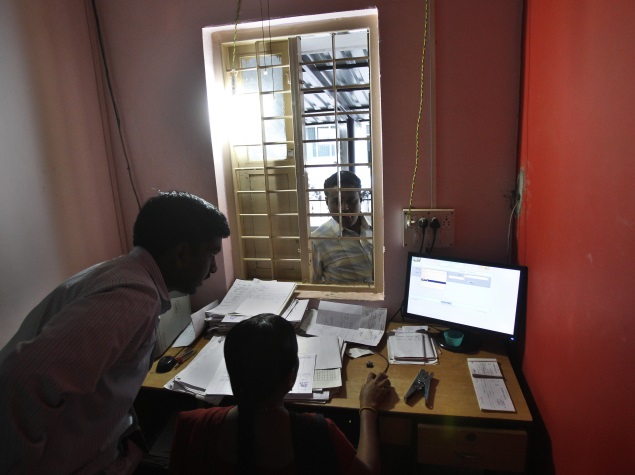- Home
- Internet
- Internet News
- Government Completes Broadband Network Rollout in 20,000 Panchayats
Government Completes Broadband Network Rollout in 20,000 Panchayats

It had set a target to roll out the network across 50,000 village panchayats by March 31, 2015 and all the 2.5 lakh VPs by the end of 2016.
"The scale of implementation under new government has been 375 percent compared to previous regime. Under the new regime 1,600 kms of fibre have been laid out. At present, work has been completed in 20,000 VPs and another 10,000 are almost already," a DoT official said.
The NOFN project was conceived in 2011 and deadline to connect all panchayats was fixed by end of 2013 then deferred to September 2015 by UPA government.
The BJP-led government re-examined status and set target to complete rollout in 50,000 VPs by March 31, 2015, another 1 lakh by March 2016 and rest of the VPs by end of 2016.
"There is no change in our target to complete NOFN rollout by 2016," the official said.
NDA Government had set up a committee under former IT Secretary J Satyanarayana to analyse the present structure of NOFN. The committee has submitted its report to Telecom Minister Ravi Shankar Prasad with suggestion to give access of various networks being built by government to people interested in it, including private companies.
"The committee has submitted report to me. Government will look in to their suggestion," Prasad said.
The panel which included Telecom Ministry officials - Aruna Sundararajan and V Umashankar as well as industry experts Kiran Karnik and Som Mittal - has made 80 recommendations including renaming of project as 'BhartNet' which should be completed by 2017.
Under BharatNet, the committee expects retail broadband services would be available at prices below Rs. 150 in poorer states and prices around Rs. 250 per month in more economically advanced states with speed "of 2Mbps to 20Mbps for all households and on demand capacity to all institutions to realise the vision of Digital India."
The present scheme promises download speed of up to 100Mbps.
BharatNet will subsume all the ongoing and proposed broadband network projects taking the BharatNet project outlay to about Rs. 72,000 crores.
The panel has suggested make connectivity ring like architecture at district, block and village panchayat level with mix of various technology and interconnect them.
It has suggest use of mix technologies - optical fibre network along with microwave back-haul spectrum and satellite for regions with difficult terrain - to spread broadband.
Catch the latest from the Consumer Electronics Show on Gadgets 360, at our CES 2026 hub.
Related Stories
- Samsung Galaxy Unpacked 2025
- ChatGPT
- Redmi Note 14 Pro+
- iPhone 16
- Apple Vision Pro
- Oneplus 12
- OnePlus Nord CE 3 Lite 5G
- iPhone 13
- Xiaomi 14 Pro
- Oppo Find N3
- Tecno Spark Go (2023)
- Realme V30
- Best Phones Under 25000
- Samsung Galaxy S24 Series
- Cryptocurrency
- iQoo 12
- Samsung Galaxy S24 Ultra
- Giottus
- Samsung Galaxy Z Flip 5
- Apple 'Scary Fast'
- Housefull 5
- GoPro Hero 12 Black Review
- Invincible Season 2
- JioGlass
- HD Ready TV
- Laptop Under 50000
- Smartwatch Under 10000
- Latest Mobile Phones
- Compare Phones
- Vivo Y500i
- OnePlus Turbo 6V
- OnePlus Turbo 6
- Itel Zeno 20 Max
- OPPO Reno 15 Pro Mini 5G
- Poco M8 Pro 5G
- Motorola Signature
- Vivo Y50e 5G
- Lenovo Yoga Slim 7x (2025)
- Lenovo Yoga Slim 7a
- Realme Pad 3
- OPPO Pad Air 5
- Xiaomi Watch 5
- Huawei Watch 10th Anniversary Edition
- Acerpure Nitro Z Series 100-inch QLED TV
- Samsung 43 Inch LED Ultra HD (4K) Smart TV (UA43UE81AFULXL)
- Asus ROG Ally
- Nintendo Switch Lite
- Haier 1.6 Ton 5 Star Inverter Split AC (HSU19G-MZAID5BN-INV)
- Haier 1.6 Ton 5 Star Inverter Split AC (HSU19G-MZAIM5BN-INV)

















